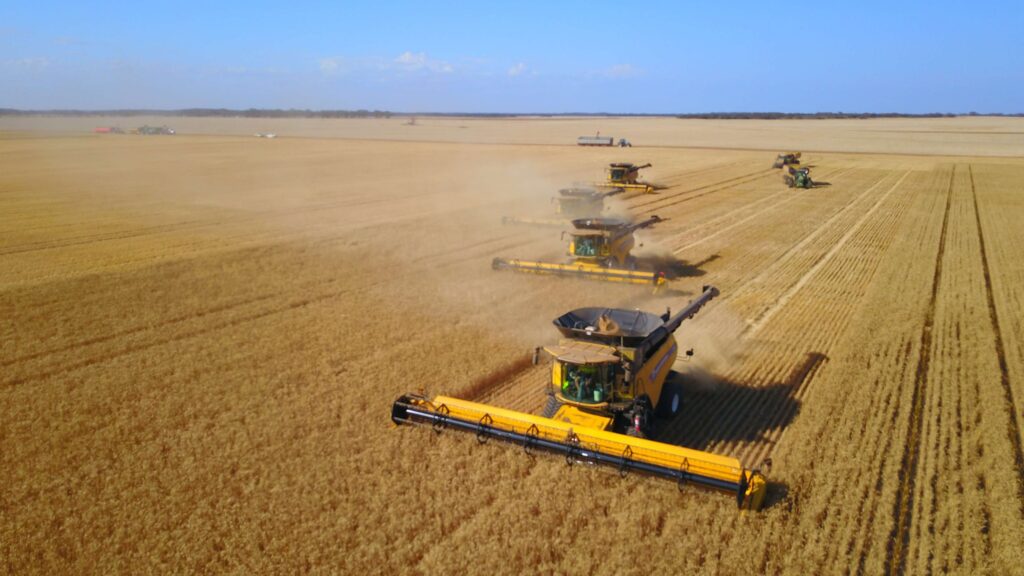Employing around 42,000 local workers, agriculture is one of the biggest industries in Western Australia. Casual employees are essential to the success of farming businesses as more workers are required during key times of the year. However, employment legislation can be difficult to understand and comply with. With seeding approaching it is a good time to consider what is required when hiring seasonal casuals.
What are casual employees? A casual employee usually works a non-regular pattern of hours, e.g. seeding or harvest, and is paid for each hour they work including overtime and penalties. Their pay includes a casual loading in lieu of receiving paid leave entitlements.
How much should I pay casual employees? Casual employees’ pay rates and entitlements are determined by the relevant Award. Awards are business specific and contain position classifications with corresponding pay guides. The Award also details relevant entitlements such as overtime rates, penalty rates and allowances. For broadacre farming, your business could potentially fall under the WA Farm Employees Award (State Legislation) or the Pastoral Award (National Legislation). Knowing which legislation your farm falls under is vital because the pay rates, allowances and conditions for employees are very different.
Farmers often find that Awards can be inflexible and paying individual entitlements, allowances and overtime can make payroll complicated. Due to the amount of overtime casual farm employees can work during the busy periods paying employees at a flat rate for all hours worked makes it much simpler.
It is a common misconception that if you pay casual employees a flat hourly rate above the Award, they don’t have to be paid applicable overtime and penalty rates. This is not necessarily true. The hourly rate must take into account the overtime and penalty rates that would apply in the award and result in the employee being Better Off Overall. If the employee is not better off overall then you would be required to pay overtime and penalty rates or increase the hourly rate so the employee is better off overall.
Under the Pastoral Award, you should use an Individual Flexibility Agreement (IFA) with an Employment Contract to show what entitlements are included in the higher hourly rate. The higher hourly rate must result in the employee being Better Off Overall. This is determined using the Better Off Overall Test (BOOT).
Awards may also dictate the minimum number of hours of work an employee must be paid for on each occasion they attend work, regardless of if the hours are worked or not.
What does with and without ‘Keep’ mean? Keep is a term in the Pastoral Award which refers to an employee who is given good and sufficient living accommodation, rations of sufficient quantity and well-cooked meals served by a Cook. Employees under the Pastoral Award can be paid either ‘with keep’ or ‘without keep’ rates. If employees are paid ‘with keep’ it is expected they are given sufficient quantity meals, cooked by a cook or cook’s offsider, as well as accommodation.
What paperwork is required when employing casuals? When employing casuals you need to ensure:
- The employee has the right to work in Australia.
- They are issued with a Casual Employment Contract.
- They are given a copy of the Fair Work Information Statement.
- They have an Individual Flexibility Agreement (IFA) if the employee is covered by the Pastoral Award and is being paid an hourly rate high enough to pass the BOOT.
- The employee completes an Employee Details Form to record contact information, next of kin and bank details.
- The employee completes a Superannuation Choice Form and Tax File Number Declaration Form.
- The employee must be provided with a detailed payslip within one day of being paid, including information on the entitlements paid, overtime hours if worked and superannuation.
Do casual employees get breaks? As a minimum standard, all employees should receive at least one 30-minute unpaid meal break for every five hours of work. Under the Pastoral award, all work performed on the instruction of the employer during a recognised meal break will be paid at 200% of the ordinary hourly rate. Payment will continue at this rate until the employee is released for a meal break for at least 30 minutes.
What is a long term casual? A casual that has worked for a period of at least 12 months on a regular and systematic basis, can be considered a long term casual. For example, a casual farmhand working all year round for 12 months or more.
What is a casual conversion? Under the Pastoral Award, a long term casual can request to be converted to a permanent full time or part-time employee. This would involve their employment changing from casual to permanent full time or permanent part-time. It is your responsibility as an employer to raise this option with your long term casuals. As an employer, you can refuse an employee’s request to convert if there are reasonable business grounds e.g. operational requirements. Likewise, employees can continue working as a casual if they don’t wish to convert. If a casual employee does convert to permanent full time or part-time this should be reflected in their employment contract.
No farm is too small to need Human Resources, it doesn’t matter if you have one casual farmhand or 100 employees, it is important you comply with the law. Human Resources is now a way of doing business, rather than a function of the business. At ProcessWorx we have extensive experience working with broadacre farms and are able to tailor our services to your needs. Get in contact to find out how we can help you manage your farm on (08) 9316 9896 or enquiries@processworx.com.au
Follow ProcessWorx on LinkedIn, Facebook, Instagram, and Twitter to keep up to date with the latest HR and Safety news.






